Must Reads: With each generation, the people of Taiwan feel more Taiwanese — and less Chinese
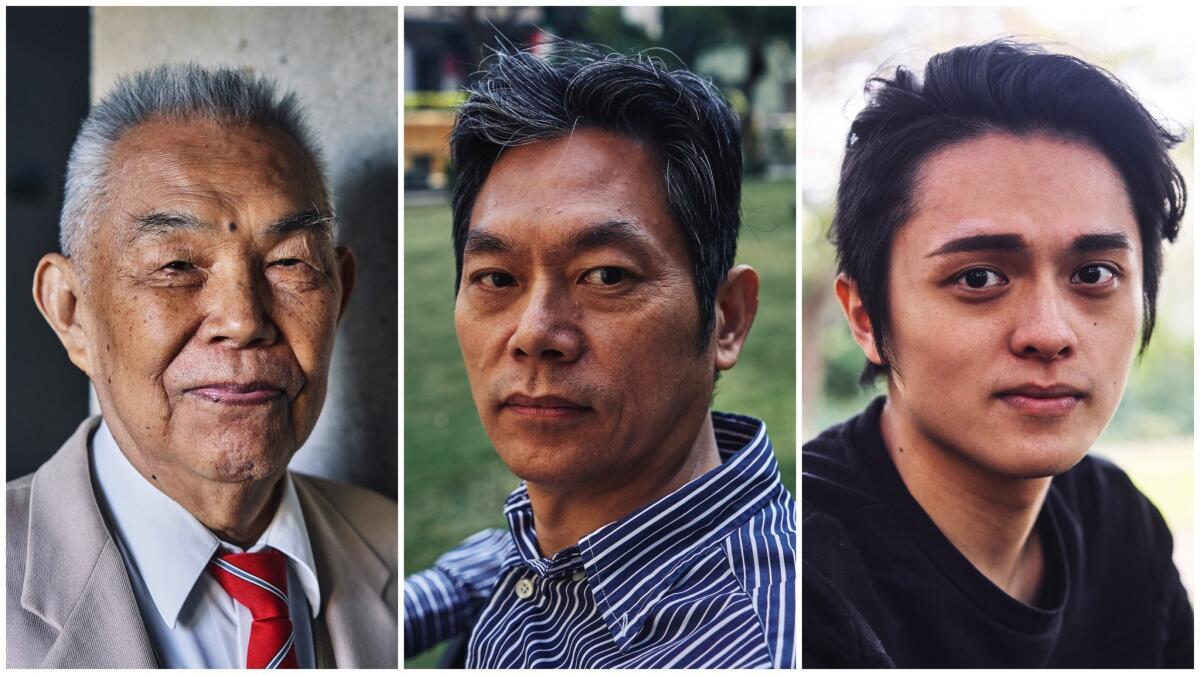
- Share via
In January, Chinese President Xi Jinping declared: “Chinese people don’t fight Chinese people.” A thousand miles away in Taiwan, Mei You-nian nodded in agreement.
Xi’s words resonated even though Mei is a veteran of the Kuomintang army, whose Chinese Nationalist soldiers fought Chinese Communists, and even though he hadn’t lived in mainland China since 1949, when he fled his village in Anhui province and sailed to Taiwan as a teenager.
That was the year that Mao Tse-tung’s Communists won the civil war, established the People’s Republic of China and chased Chiang Kai-shek’s Nationalists to Taiwan, which became the new home of the Republic of China. Both sides insisted that they were the legitimate rulers of all China — both sides of the Taiwan Strait.
“People’s Republic or Republic of China — aren’t they all China in the end? We’re one family. We’re all Chinese,” said Mei, now 87.
Yet when his son, Mei Heng-han, heard Xi’s sentence, he laughed.
“Chinese people don’t fight Chinese people, OK,” the 55-year-old businessman said. “But I’m Taiwanese.”
Years of watching China pressure the world to deny Taiwan’s legitimacy had made him cynical about Chinese bullying. “It comes down to power,” he said.
And there was the younger Mei’s 23-year-old son, Shayne. To him, Xi’s sentence was a blatant threat.
“Very smart rhetoric. Sounds all positive and peaceful,” Shayne said. “But it’s just another way of saying, ‘If you keep saying you’re not Chinese, we will bomb the hell out of you.’”
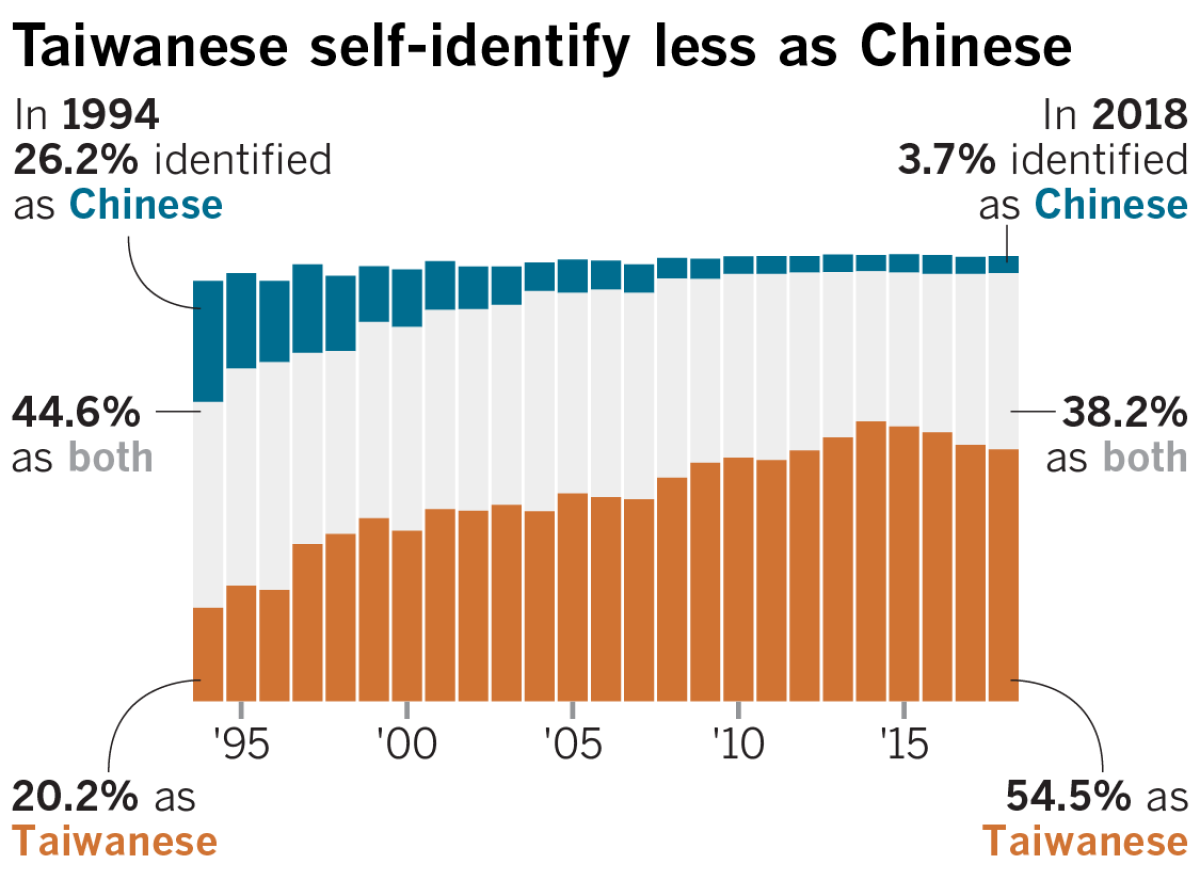
Relatively few people in Taiwan trace their roots to the 1949 exodus from the mainland. But even native-born Taiwanese once viewed themselves as part of greater China.
While Chinese state rhetoric refers to Taiwan and China as “one family,” the percentage of Taiwanese who identify as Chinese has steadily decreased among younger generations. Some older citizens still call themselves Chinese. But their descendants’ identities have evolved alongside Taiwan’s social shifts: the lifting of martial law, political liberalization, educational reform and fluctuating relations with China.
Public opinion polls conducted since 1992 by National Chengchi University show a steady increase, from 17.6% to 54.5%, of Taiwanese people who identify as only Taiwanese. Those who say they are “both Taiwanese and Chinese” have hovered around 40%. Those who identify as only Chinese have dropped from 25% to less than 4%.
The result is a widening gap between Taiwanese of different generations, who often hold opposite visions of what it means to be Taiwanese — even among members of one family.
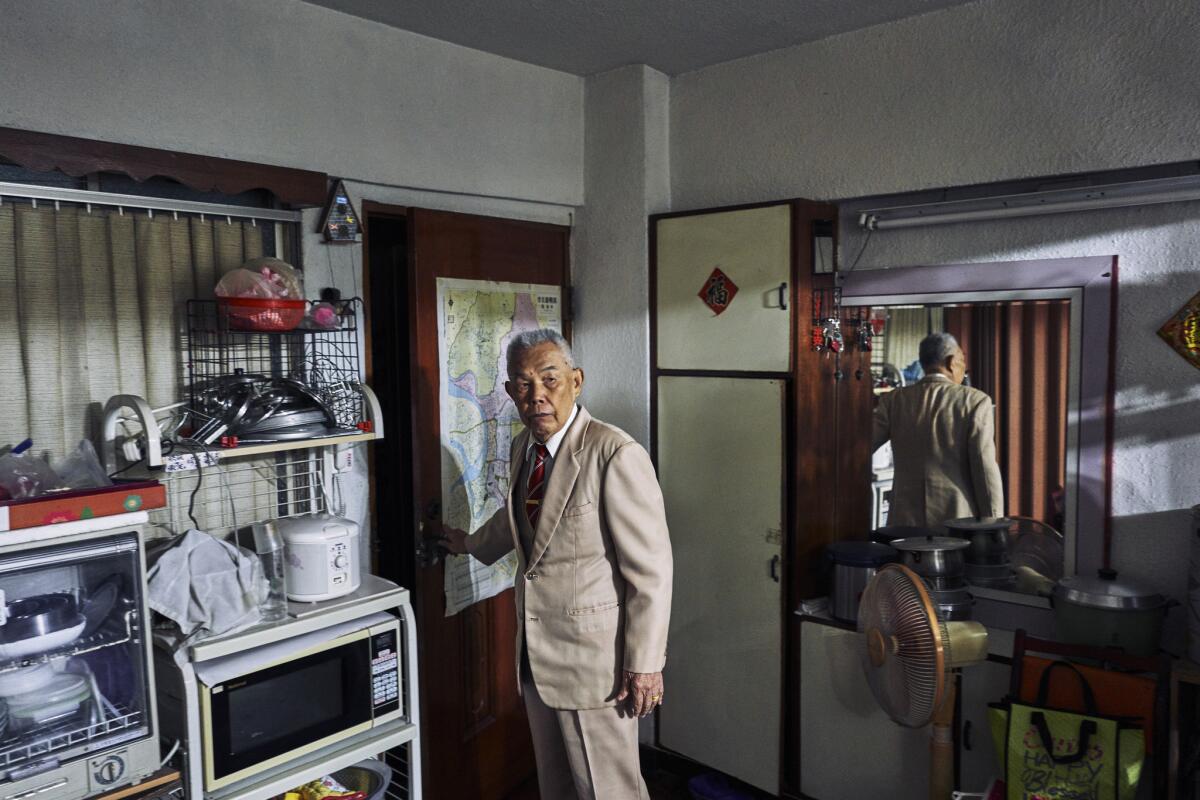
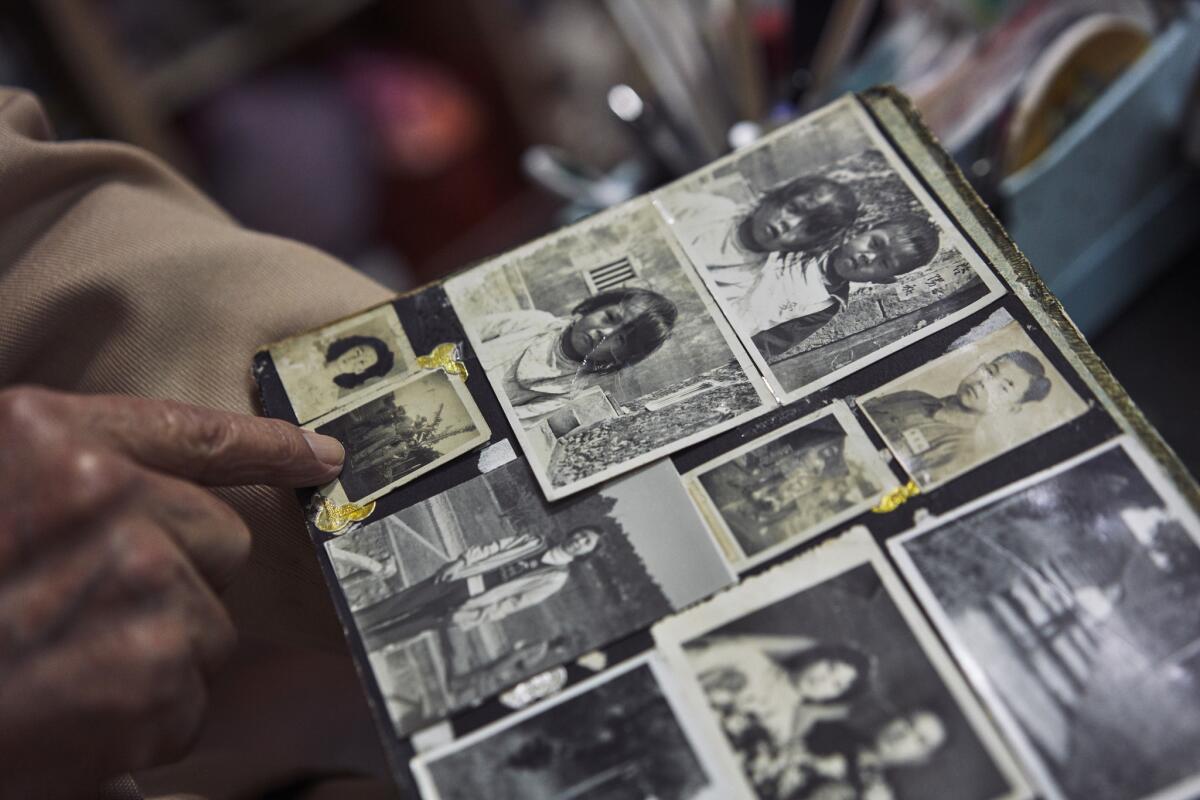
Mei You-nian was 17 when he left Anhui, but he remembers his roots: carrying lunchboxes to the fields for his parents, herding cows on foot, his mother stanching his bloody noses in a straw-roofed home. He’d never left the village until 1949, when his grandfather called a family meeting and told the military-aged men to go. You-nian was too young to fight, but he joined the Nationalist army as a military nurse.
You-nian followed an uncle to Shanghai, then took a boat to Taiwan. The journey took one week. You-nian threw up every day. They landed in the port city of Keelung right before the Dragon Boat Festival, where they bought bananas and zongzi, glutinous rice wrapped in bamboo leaves, from Taiwanese people.
“I couldn’t have known that we wouldn’t come back. We were just living one day at a time,” You-nian recalled, sitting in a wrinkled green armchair in his Taipei apartment. On the wall, a world map with a Republic of China flag hung next to a collage of family photos. He opened a leather album of black-and-white snapshots. The first page contained small photos of a younger You-nian surrounding a larger portrait of Chiang Kai-shek in full military regalia.
“I adore him,” You-nian said. He said he has voted for Chiang’s Nationalist Party, or Kuomintang, his entire life, and he served in the army until he was 70. By then, he was a lieutenant colonel.
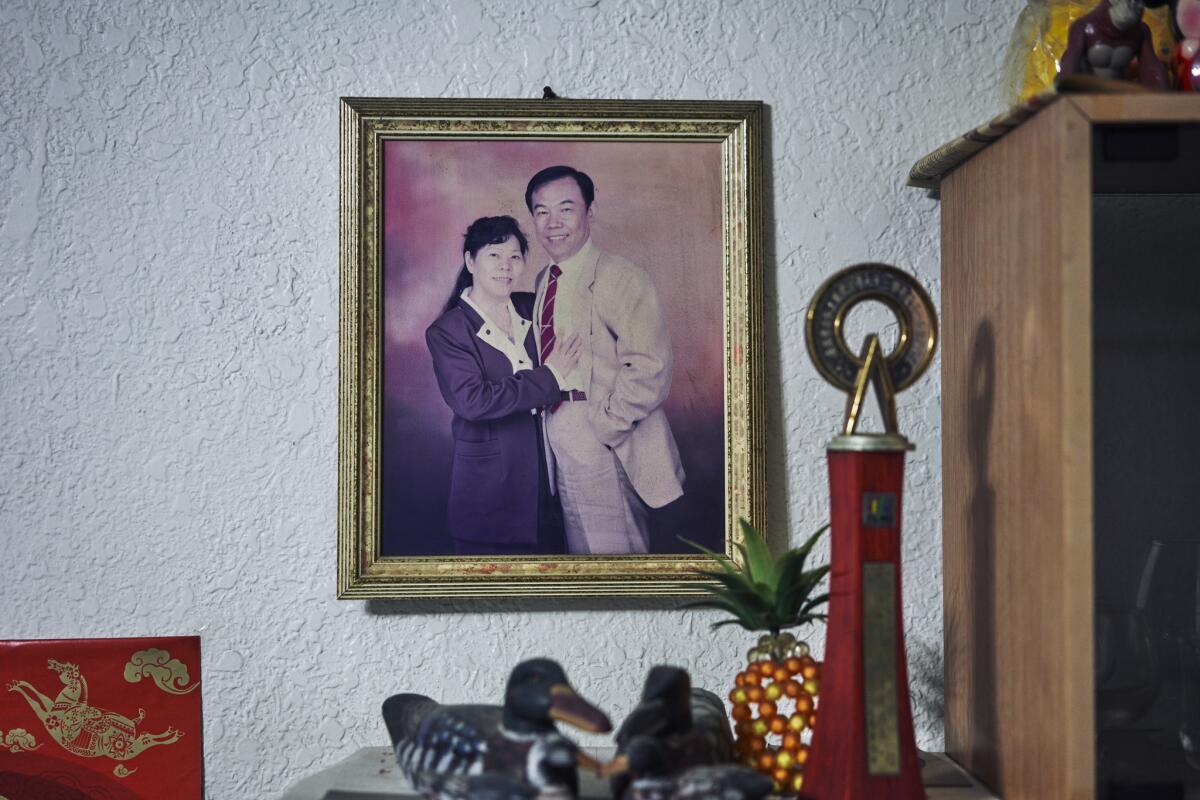
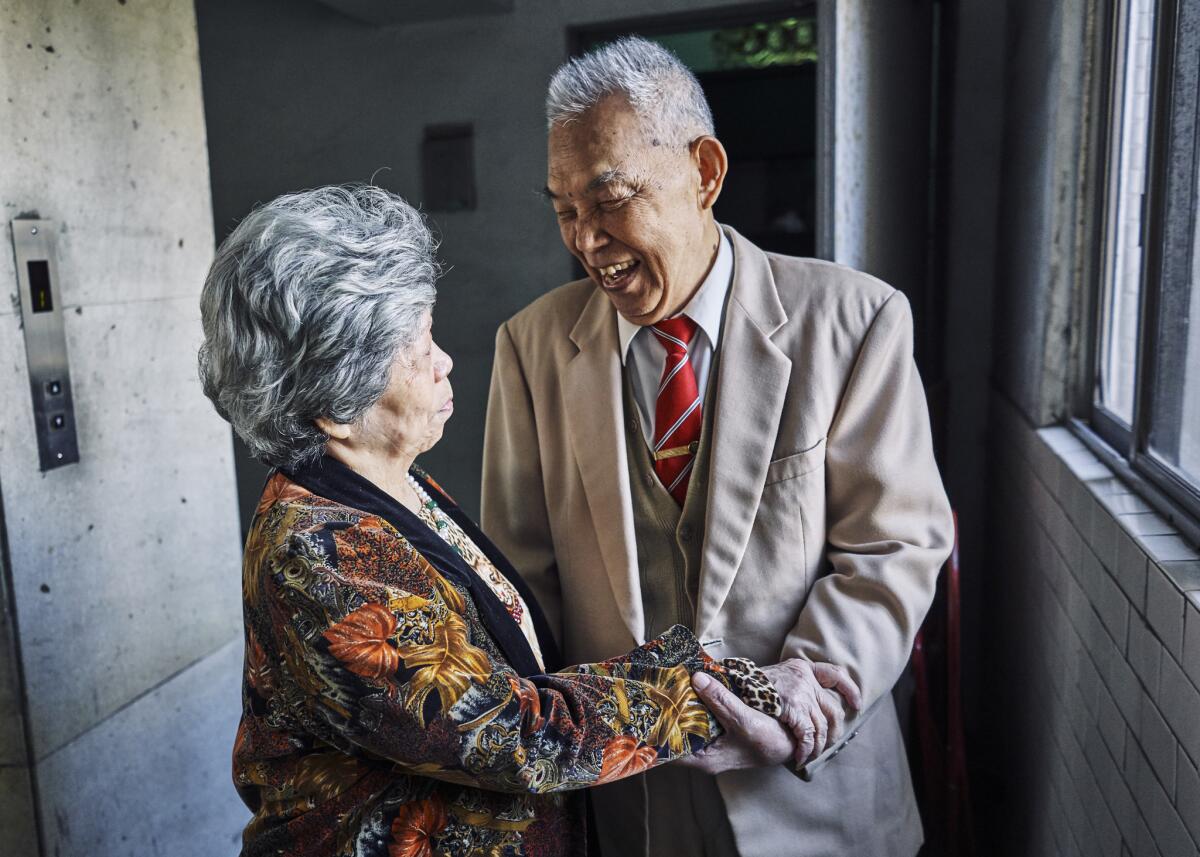
You-nian met his wife while stationed in Penghu, a smaller island in the Taiwan Strait, and married at age 30. She was benshengren, a native Taiwanese descended from ethnic Chinese who had inhabited Taiwan since before Japan took over the island in 1895. Her family resisted their marriage initially, seeing You-nian as an outsider, but relented in the end. Their son Heng-han was born in 1964, between an older and a younger sister.
Growing up, Mei Heng-han said he took for granted that he was Chinese. “We were brainwashed to be Chinese. We called ourselves Taiwan province,” he said.
Taiwan was then under martial law, with harsh restrictions on press, speech, assembly and formation of new political parties. The ruling Kuomintang continued to claim sovereignty over all of China, including the mainland, while the Communist Party in Beijing claimed the same.
In Taiwan’s schools, class workbooks were printed with the imperative to “Be a happy, lively student; be a proper, upright Chinese person.”
Heng-han’s wife, who is also a benshengren, wasn’t allowed to speak Hokkien, a dialect of Chinese spoken by descendants of Fujianese immigrants who’d come to Taiwan during the Qing Dynasty. Their history wasn’t taught in schools.
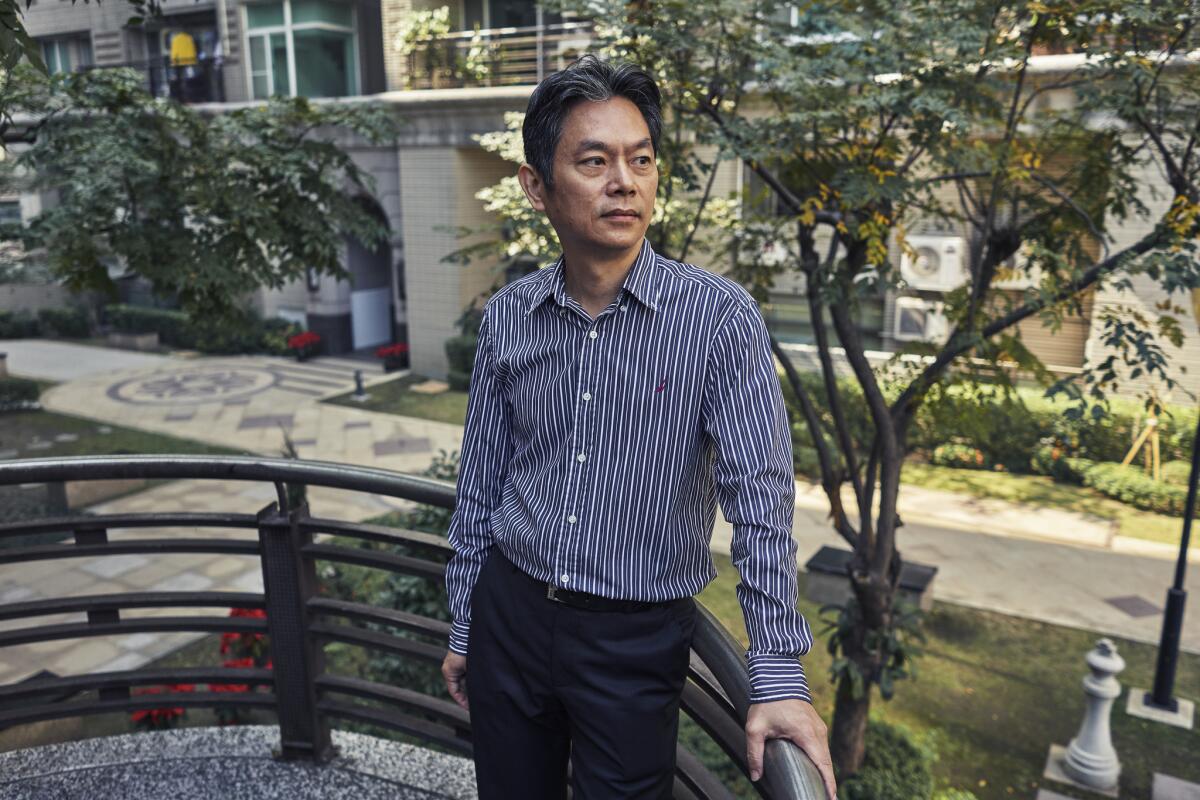
In 1989, after finishing university and army service, Heng-han went to study computer science in New Jersey. There, Americans asked him where he was from. He’d say, “Taiwan,” and they’d reply, “Oh, China.” He’d repeat, “I’m Taiwanese,” and they’d say, “Oh, Chinese.” For the first time, Heng-han felt indignant that the rest of the world didn’t seem to know Taiwan was different.
Meanwhile, Taiwan was changing. In 1987, martial law was lifted. Suddenly, it was safe to speak Taiwanese dialects such as Hokkien, to criticize the Kuomintang, to have opposition parties and to mobilize civil society.
“In the ’90s, society changed. People started to discuss national identity, Taiwanese independence, democratic transition,” said Chang Tieh-chih, deputy secretary-general of Taiwan’s General Assn. of Chinese Culture. “You had social movements at every level, in communities, among aboriginal people, with labor unions — the original values were really challenged.”
One of the major reforms took place in education. Taiwanese schools added a Taiwan-centric history curriculum, starting with 400 years of Taiwan’s history, before and after 1949. Previous textbooks had focused on Chinese history, tracing a line from China’s imperial dynasties to the 1911 Xinhai Revolution to the Kuomintang loss in 1949. Taiwan had been a postscript. Now it was the main subject.
“It’s a paradigm change,” Chang said.

In 1995, Mei Heng-han’s son Shayne was born. He grew up in Kaohsiung, southern Taiwan, but then went to Taipei, the capital, to study foreign languages and literature at National Taiwan University. Shayne met his girlfriend, Daphne Chiu, on campus. They wear rainbow bracelets to support marriage equality and speak English with perfect accents, his British, hers American. For them, Taiwanese independence is a given, along with social values such as LGBTQ and women’s rights.
“We think about China all the time. It’s a threat, a bully, something we’ll have to avoid,” Shayne said.
Isolation-wary, Chinese-speaking Taiwan moves to make English an official language »
Shayne and Daphne were both too young to vote in 2016 (the voting age is 20 in Taiwan), when pro-independence President Tsai Ing-wen was elected. But they participated in November’s midterm election and referendum. Referendum topics included whether to recognize same-sex marriage and whether Taiwan should compete as “Taiwan” instead of “Chinese Taipei” in the Olympics. Both were rejected.
Shayne was shocked. He’d thought he knew exactly how people would vote.
“I feel confused. I’m losing this sense of self-identity and belonging. All these people, they don’t even agree on what country we are,” he said.
Taiwanese had been convinced by media claims that their athletes would get shut out of the Olympics if they angered China by changing their competition name, Shayne said, which just showed how emotional and easily manipulated his compatriots were.
“I think we’re just cowards,” he said. “I feel really powerless.”
Daphne didn’t understand how people could fail to empathize with the gay community. To her, it was a moral imperative to support equal rights; she couldn’t fathom how other voters could see same-sex marriage as a matter of opinion.
“I’m really depressed and disappointed about Taiwanese people. That’s why I want to leave here,” she said. Both are applying for graduate school in the United States.
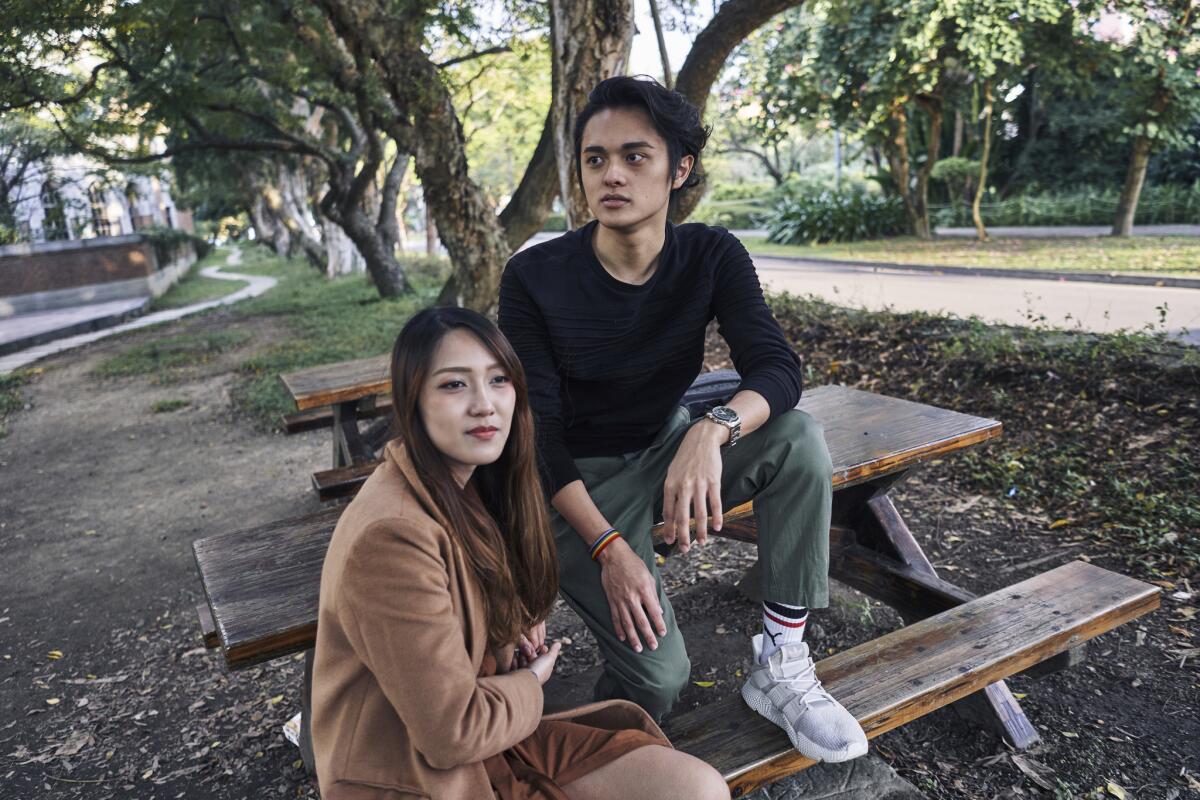
Chang Mau-kuei, a sociologist at Taiwan’s national academy, Academia Sinica, pointed out that identity is a product of lived experience, which can vary so widely between different generations that they exist in disparate worlds. One factor influencing Taiwanese identity has been the experience of meeting mainland Chinese people, which was only possible after 1987, the year Taiwan and China began permitting cross-strait visits.
“Until 1987, Taiwanese couldn’t see any mainland Chinese. In propaganda, they were Communist, ‘bad Chinese,’” Chang said. “Then, they met! Suddenly you see real Chinese, good and bad, relatives or not, employees, bosses, marriages — a separate identity emerged from interaction. The more you interact, the more you find you are different.”
In 1991, Mei You-nian went back to Anhui, only to find that his parents and siblings had starved to death during China’s 1960s famine. He knelt at his family’s grave, weeping, when he found out. The Chinese relatives called You-nian uncle, and he felt at home. He filled a bottle with Anhui soil and brought it back to Taipei.
In 2001, Mei Heng-han went to Anhui with his father. He added some of his distant relatives on WeChat, and ordered a gift from Taobao, an online shopping site, when one of their sons got married. Otherwise, they rarely talked.
He’s also been to China on state-sponsored business tours encouraging Taiwanese investment in Fujian, the closest mainland province to Taiwan. His main impression was that China develops quickly, but is rife with scams. Heng-han has stopped calling himself Chinese, except when doing business with Chinese people.
Shayne has never been to Anhui. His grandfather gave him a red packet of money when he graduated in 2018, saying he wanted him to get a doctorate, and then he’d bring his grandson to the village and show him off. Shayne cringed at the idea. “I’m getting a master’s, not a PhD, and then I’m going to work in tech,” he said.
He’d visit Anhui if his grandfather really wanted, though.
Twitter: @aliceysu
Sign up for Essential California
The most important California stories and recommendations in your inbox every morning.
You may occasionally receive promotional content from the Los Angeles Times.








